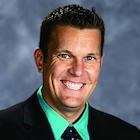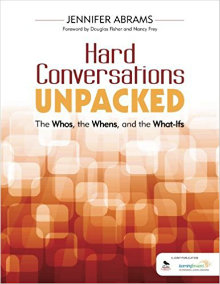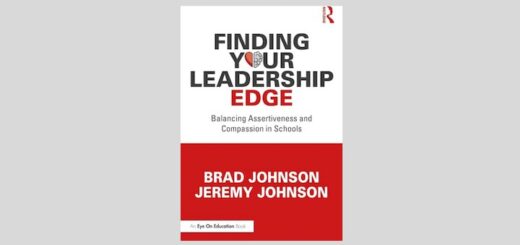Hard Conversations Can Lead to Positive Change
Hard Conversations Unpacked: The Whos, the Whens, and the What-Ifs
By Jennifer Abrams
(Corwin/Learning Forward, 2016 – Learn More)

Professionally, most educators read new books in order to gain ideas with the goal of growing as an educator. Everywhere you look, there are books upon books that provide us with the newest strategies and philosophies for us to become the best educators we can.

As leaders of our classrooms, buildings or districts, sometimes we focus on what teachers need to be doing, but what do we do when educators are selling our students short? How do we have the conversations with them in order to maintain a positive culture? How do we have those…Hard Conversations.
In her book Hard Conversations Unpacked: The Whos, the Whens, and the What Ifs, Jennifer Abrams provides anyone who has to have a hard conversation with some practical guidelines so they can be prepared to have a meaningful discussion that will lead to change.
This is an ah-ha book
As an educational leader, I find this is the ah-ha book that I have been looking for. As I have progressed as an educator, I have often thought about how I can get others to make the shifts that are so important for student learning. In my time in education, I have made many mistakes when I attempted to have these “Hard Conversations” without having a plan. There have been missed opportunities, hurt feelings, and ultimately no change.
Since reading Hard Conversations Unpacked, I not only feel more confident when having these conversations, I feel empowered by the understanding that it is my responsibility to have them. It’s what’s best for kids.
Every educator out there has experienced this situation: Sitting at your desk and thinking to yourself, “How in the world am I going to have this conversation?” Whether it’s with a peer, a teacher you evaluate, a parent, or anyone else you impact in your day-to-day interactions as an educator, this is a question that continually gets asked.
I fear that, too often, we talk ourselves out of these conversations. Why? Because they are hard. That is where Hard Conversations Unpacked becomes an invaluable resource for educators.
Setting up a culture of “Relational Trust”
As you work through Hard Conversations Unpacked, it is clear that Jennifer Abrams will guide you toward being prepared for those challenging discussions. Even if you feel you are not ready to have them, Abrams provides you with plenty of insight about setting up a culture of “Relational Trust.” It is through this relational trust that colleagues can be able to better handle cognitive conflict (task oriented conflict) and affective conflict (personal conflict).
Understanding these two different types of conflict will make or break a productive conversation. Hard Conversations Unpacked offers strategies to make sure that you are prepared to make judgements and have conversations around the behavior, and not the person. For me, this was a very powerful part of her work. It allows educators to see that the conversation is about growth, and not about having done something wrong.
Help for the leadership conundrum
Sometimes the hardest thing about being in a leadership position is that you are on an island when it comes to these hard conversations. There are issues that you cannot discuss and must keep confidential so you might get the feeling of being alone when you have to have them. That is why I feel strongly that Hard Conversations Unpacked is a must read for all leaders in our school buildings.
Jennifer Abrams is right there with you, taking you through the process step by step – first to help determine if you need to be having the conversations, then by identifying six questions from her first book, Having Hard Conversations (Abrams, 2009) that will set you up for success:
- What is the presenting problem?
- What is the tentative outcome?
- What are specific desired behaviors connected to this outcome?
- What knowledge, skills, and identity would the person need to have in order to do these behaviors?
- What supports and strategies might I offer and use to help this person toward the outcome?
- What might I need, both internally and externally, to move this conversation forward?
Using these six questions, Abrams creates an inclusive framework that gets you prepared to have a hard conversation. As you work through each section and chapter of the book, you realize that “Hard Conversations” are also about us – about growing as leaders.
Focusing on the behavior and not the person
Each time that I review a book, I make sure that I put the learning into action. When working through Hard Conversations Unpacked, I felt truly prepared for a challenging conversation. As the book guided me through the planning stage, I was able to identify new dynamics that might play a role in the direction the conversation would go. This allowed me to continue to focus on the behavior and not the person, as Abrams states in her book.
As it came time to script a “humane, growth providing conversation” as Abrams calls it, I was able to completely understand what I was trying to articulate in my conversation, and also prepare for any what-ifs that might come my way.
Yes, I have had hard conversations in the past. Some have lead to growth while others have not. After reading and then experiencing Hard Conversations Unpacked: The Whos, the Whens, and the What Ifs, I would never attempt a challenging conversation without following this framework, as it is one that focuses on growth, and ultimately on student learning.
Mike Janatovich is the principal of Leighton Elementary School in Aurora, Ohio. Before taking his current job this school year, he spent three years as a middle school assistant principal and ten years as a 7th and 8th grade science and social studies teacher. As a middle level advocate, Janatovich believes that educating the whole child is critical in ensuring academic success. He was a member of the ASCD 2015 Class of Emerging Leaders. You can follow him on Twitter @mjanatovich. Click here to read more of his writing for MiddleWeb.




































